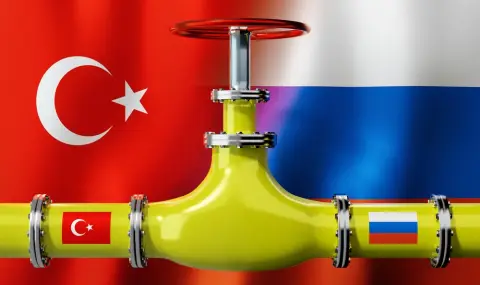Using a sanctions loophole , Turkey disguises Russian oil as its own and exports it to the EU, bringing billions in profits to Russia, writes the European edition of Politico.
According to research by the Center for Energy and Clean Air Research (CREA) and the Center for the Study of Democracy (CSD), as well as an independent report by Politico, Russian oil appears to be entering the EU en masse through Turkey.
According to a senior energy analyst at CSD, Turkey has become a strategic stopover for Russian fuel products diverted to the EU, generating hundreds of millions in tax revenue for the Kremlin.
Between February 2023 and February 2024, Turkey increased its purchases from Russia by 105% compared to the previous 12 months. During the same period, Turkish fuel exports to the EU jumped by 107%.
"This does not mean that every batch of fuel that arrives in the EU from Turkey is Russian. Turkey has refineries that can process almost 1 million barrels of oil per day. In addition, Turkish companies are likely to resell some non-Russian fuels to the EU," the publication states.
In general, the scheme by which Russian fuel enters the EU is connected to a loophole in the sanctions. Yes, despite the restriction, there is a permit to import into the EU a "mixed" fuel if labeled as non-Russian.
According to the study, the scheme brought Moscow up to €3 billion (BGN 5.96 billion) from just three ports (Ceyhan, Marmara-Ereglisi and Mersin) in the 12 months after the EU banned Russian fuel in February 2023.< /p>
The southeastern port of Ceyhan, for example, has limited road and rail links to refineries, giving it little means of receiving large shipments of fuel except from tankers berthed at its piers.
From February 2023 to 2024, the port received an estimated 22 million barrels of fuel, 92% of which came from Russia, three times more than it imported from Moscow a year earlier. During the same period, 85% of fuel exports from the port went to the EU.
A similar situation is observed in the western port of Marmara-Ereglisi and the southern port of Mersin. Both ports showed similar annual spikes in Russian imports – doubling in Marmara Ereglisi and tripling in Mersin – coinciding with a jump in exports to the EU.
Greece's customs authorities, one of the largest importers of such fuel, said they were carrying out "appropriate controls both at the customs clearance stage and after it" and that "no violations have been identified so far".
However, the publication clarifies that in practice a document indicating the origin of the cargo, called a "certificate of origin", is checked. Importing fuel with Russian documents is mostly illegal under EU law, but simply replacing the Turkish mark of the old cargo with a new Turkish certificate is not.
